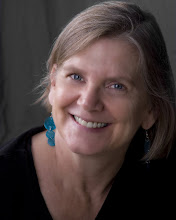
Recently I vetoed reading a poem as a writing prompt in a workshop--it used big words that people might not know. I didn't want the participants to spend any time having to decode the poem's meaning.
"I am so glad you didn't use a poem with words we might not get," one workshop member said. "Poetry needs to be accessible, have strong images, not difficult words."
"Yeah, I hate that," another student said. "Big words put me off the author."
I thought of the scene in Alice's Adventures in Wonderland when Alice and her new rodent and bird friends are trying to dry themselves after swimming in a pool of Alice's tears. (She shed the tears when she was huge and crying about being too big to fit through the tiny door that led to the lovely garden.)
The Dodo chimes in about how to get dry: "I move that the meeting adjourn, for the immediate adoption of more energetic remedies."
"Speak English!" said the Eaglet. "I don't know the meaning of half those long words, and, what's more, I don't believe you do either!" And the Eaglet bent down its head to hide a smile: some of the other birds tittered audibly.
"What I was going to say," said the Dodo in an offended tone, "was, that the best thing to get us dry would be a Caucus-race."
Such a wild yet wise book.
The vocabulary chapter says: "Prefer the familiar word to the far-fetched. Prefer the concrete word to the abstract. Prefer the single word to the circumlocution. Prefer the short word to the long."
Oops. Big word alert: Circumlocution, in case you don't know, means: a roundabout or indirect way of speaking; the use of more words than necessary to express an idea.
Well, sometimes a big word is simply the best word. Still, I try to avoid them in my own writing and in the writings I share with my groups.
William Zinsser states in Zinsser on Friday that we should write with "no unnecessary parts." Big cumbersome words that are off-putting and intimidating are, indeed, unnecessary parts.


